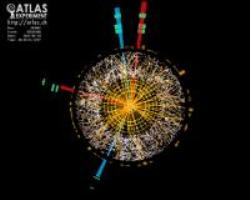Element Six declared that its extremely pure synthetic diamond forms a major part of the CMS (Compact Muon Solenoid), CERN LHC (Large Hadron Collider) and ATLAS Beam Condition Monitoring Systems which were employed in the recent Higgs boson experiments that resulted in the discovery of a new particle.
 Particle detectors
Particle detectors
CERN researchers have opted for Element Six electronic grade synthetic diamond as the optimum detector material due to its proven efficiency and purity over the CERN's proprietary CMS and ATLAS Beam Condition Monitoring Systems. Synthetic diamond was revealed to be a strong sensor material that remains unaffected by harsh, high radiation environment and have instant reaction capabilities, thereby ensuring safety for the advanced measurement systems.
Based on chemical vapour deposition (CVD) process, the synthetic diamond potential for use in the detectors has been developed by Element Six. In this CVD process, a mixture of gases has been involved, resulting in high temperature plasma, through which carbon can precipitate as synthetic diamond onto a substrate layer.
The CERN CMS and ATLAS experiments’ objective is enumeration, tracking and characterizing the various particles resulting from the collisions of particles within the LHC. The monitoring system includes synthetic diamond detectors that ensure safety and safeguard the experiments against adverse beam conditions. In addition, these detectors will allow precise luminosity measurement that played a vital role in achieving the recent five sigma result.
The synthetic diamond utilized in these monitoring systems had increasing grades of ultra high levels of purity. It resulted by combining < 1 ppb of boron, and <50 ppb of nitrogen. Synthesizing diamonds with these high levels of purity makes it a suitable radiation detector material. The unique properties represented by these diamonds include rapid signal response, very low leakage current with slight temperature dependence, enhanced radiation hardness, and minimal leakage-current than the commonly used silicon.